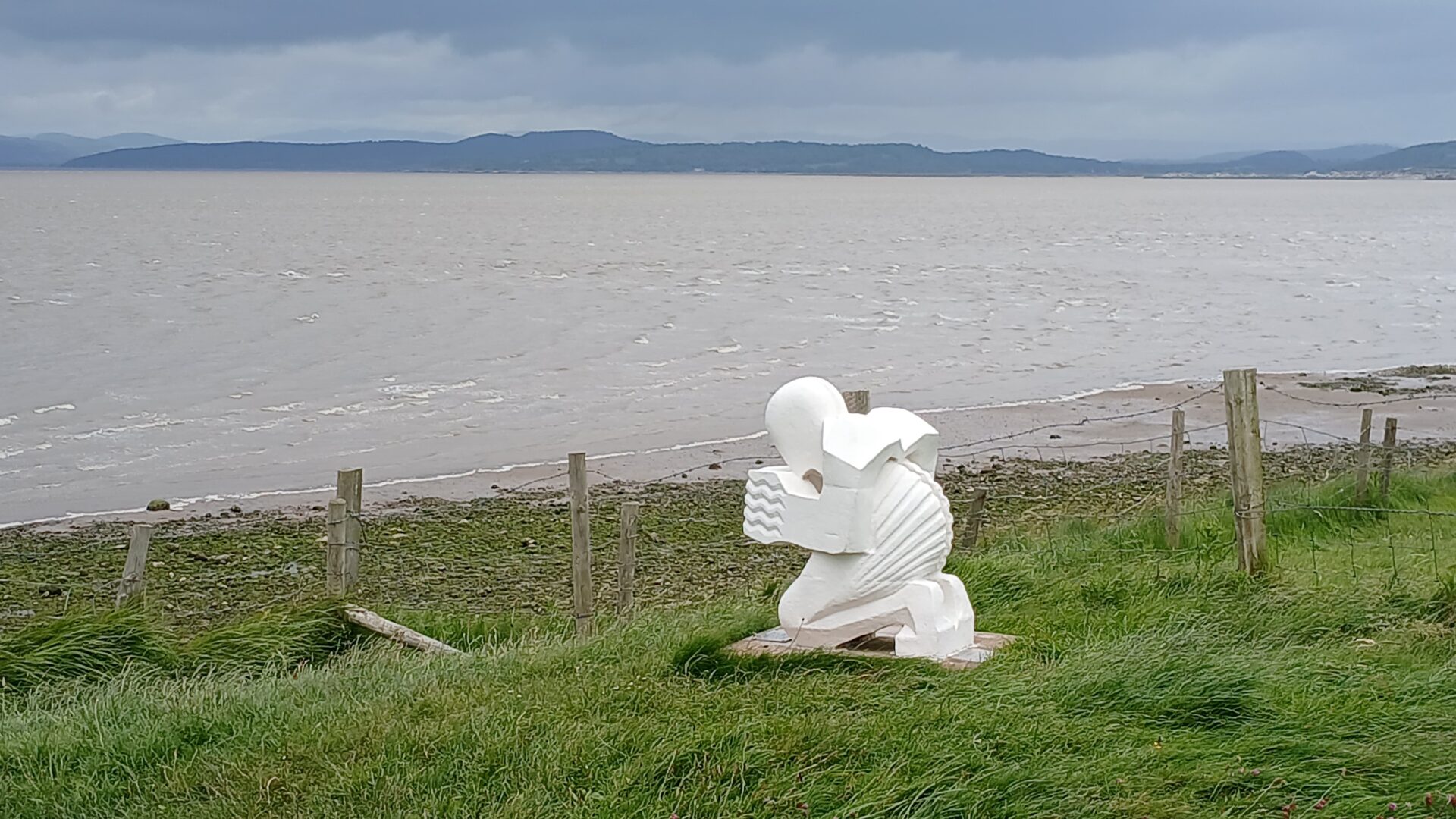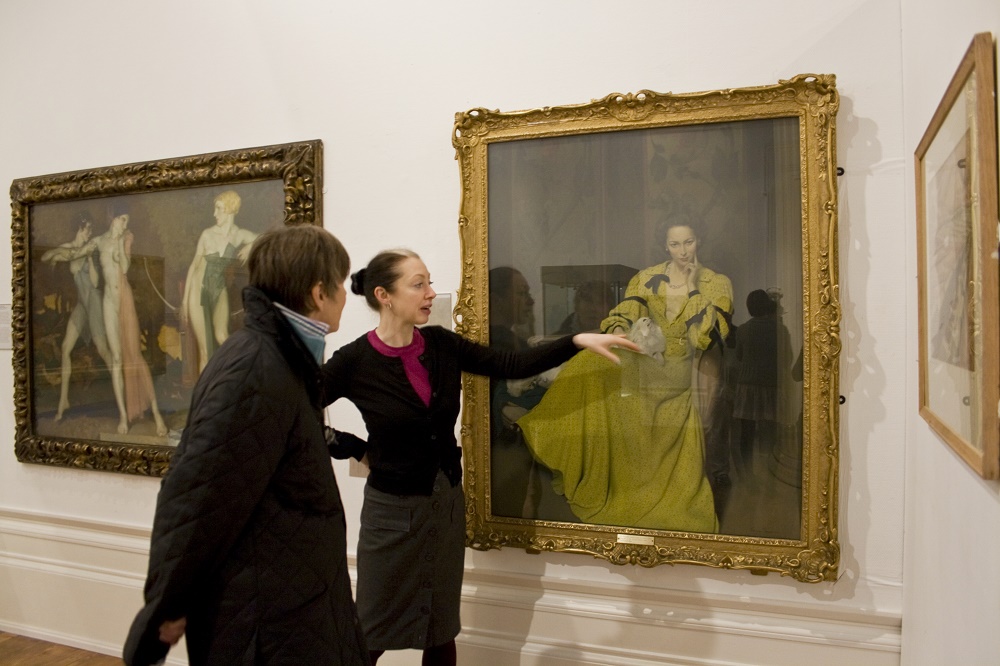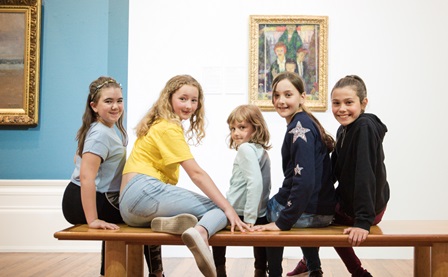
North West Reads Book 20: The Bay by Julia Rampen
By the standards of western countries Suling and Changfa’s ambitions were quite modest. A decent job, a home and a means to provide a good life for their families were things that most people in Britain and Europe expected and took for granted. For Suling, she wanted a home for her mother and a better job than the one she had in the soul-destroying windowless factory in China. She and Changfa had made the journey to Britain to work and attain these goals. Changfa had gone first and Suling followed him a little later. A broker provided her with a new passport with a new name and age, 24 instead of 17; the loan she took out didn’t seem too big and Suling believed Changfa’s confident assertion that she would soon pay it off and start earning money for herself. This all changed on arrival at Calais when a member of an organised crime gang, a snakehead, upped the debt, a debt Suling could not get out of now she was committed to getting to Britain. She crossed the channel in the back of a lorry and was relieved when they finally arrived and could breathe fresh air again. Then on to Morecambe and the cockle beds in the bay.
Cockling is hard, exhausting, back-breaking work. In winter the expanse of the bay exposes people to Lancashire’s damp, penetrating cold. The work is also dangerous, something that Arthur Cleary knew all too well. He had done well for himself in life. After serving in the Royal Navy during the war he had trained and qualified as an accountant, studying at night school, enabling him to leave his job in a factory for a more comfortable and affluent life. He and his wife, Gertie, lived in a house overlooking Morecambe Bay and had brought up a daughter, Margaret. But now Arthur was a widower, grieving for Gertie. As with many men of his generation Arthur found it difficult to articulate this grief. Instead, the grief came out as outbursts of anger and irritability, and there were plenty of things that irritated Arthur. Having lived in the town for over 50 years he’d noticed it change, and not in ways he was happy about.
Shops had closed and the town centre was looking very run down. Then there were the numerous ‘foreigners’ about the place chattering loudly on their phones. There were too many ‘donnuts’ and ‘eijits’ about these days as well, and they included members of the police force. Driving one night down the coast road he saw some blue lights and stopped to help the officers; he feared that the new band of cocklers had got into trouble on the bay. Arthur knew the sands and how dangerous they were having lost a close friend, Sid, just before the war when they were boys. The two officers found Arthur’s concern amusing. They just saw an old man fretting, and ignored his pleas that he knew the bay and if anyone was in trouble they had little time to save them. They tell him that no one is on the sands, it’s just a bunch of Chinese cocklers getting into a fight and being arrested, nothing to worry about. They suggest, in a condescending tone, that he should go home, it’s a bad night for an elderly man to be out.
Arthur was angry at this dismissal by the officers; he was angry at the new arrivals, who were not ‘real’ cocklers with knowledge passed down from generation to generation, and was angry at being regarded as redundant now that he was old. But his anger quickly turns to overwhelming fear after he decides to visit his friend Jack only to find that he had recently died and, as Jack’s neighbour reminds him, Arthur had attended his funeral. Old age had taken away his status as a citizen people listened to and respected, but dementia would completely remove his independence, the only thing he felt he had left to him. He never wants to leave his home and end up in a care home. Unfortunately, Margaret finds out about his visit to Jack’s house and starts to question whether Arthur can cope on his own. She brings him a mobile phone, which he doesn’t want and refuses to use. Her well-meaning concern for her father places a strain on their relationship, one that was never as close as her relationship with her mother. A quiet battle of wills begins with a fearful and angry Arthur regularly losing his temper and Margaret openly questioning Arthur on his ability to cope; on the quiet, she makes enquiries about care homes in the area.
A face from the past, not entirely welcome, returns to the neighbouring house. Angela and her ex-husband Reggie had been friends of Arthur and Gertie when they were much younger. Then Angela had left Reggie, something which Arthur disapproved of. He also had another reason to not like Angela; she had suggested to Gertie that she was not fully happy in her marriage, that she could leave Arthur if she wanted to. Decades later Angela was in an electric wheelchair and had terminal lung cancer. Her son, daughter-in-law and grandson were staying at the house, Reggie having himself gone into a care home. Arthur still felt a residual resentment towards Angela but finds that they are now too old and have known each other too long to maintain that anger. They are able to confide in each other, Angela about her health (and she confirms that she has not told her family how serious her condition is), and Arthur about his fears of losing his home. Angela advises him not to give Margaret a reason to go ahead with her plans. This, however, would not prove to be easy in a house that was essentially sound but was now showing its age.
Snow had fallen and Arthur’s temperamental boiler had stopped working. Arthur knew how to sort it; he just needed his tools from the shed. He goes in but the next thing he remembers is being patched up, kept warm and fed some hot noodles by a young girl who spoke very little English. Suling had been sleeping on an old couch in the shed and had unwittingly knocked over a rake over which Arthur had tripped. She had been part of the group of cocklers who had been arrested, but she had avoided their fate by not going with them to catch the van that took them back to their lodgings after they finished their shifts. Suling had decided that she did not want to continue with cockling. She had wanted a better job, to be learning English and improving her prospects. London was the place she wanted to be despite the risks from the snakeheads both to her and her family back home. The cockling was no better than the factory work she had done back in China. She had told Changfa of her plans to leave and was going to meet up with him later, but then found the terrace house where they all lived in darkness and locked up. Her possessions and ID documents were in there, so she was left with no choice but to live rough, eating food that had been thrown away by the nearby supermarket.
She found shelter in a disused Lido and was joined by another member of the homeless community. Unaware that her group, including Changfa, had been taken away to a detention centre, Suling waited to see if they returned. Unfortunately, when one of the snakehead gang members finds her, she has to flee. There was no way they were going to overlook the debt and he threatened that she had to pay it off in any way she could. She had heard about girls being forced into sex work to pay off their debt. Losing him in the town, she eventually found shelter from the freezing weather in Arthur’s shed and was now tending to the `old uncle’ who had fallen and cut his head. The snakehead had, at least, given her one useful piece of information. She now knew what had happened Changfa and the others. Suling knew she was entirely on her own now.
Arthur, shaken up by the fall and fearful lest Margaret see his injuries and decide once and for all that he could not be left to live alone, sees a very young girl who treats him with respect and deference. This is something that he rarely experiences from young people now. He could see that she was scared and jumpy. Suling was worried that he would call the police on her, but he doesn’t. He still is bad-tempered and after one outburst she flees the house. When she returns, having nowhere else to go, Suling sees regret in his face. And so, an odd friendship develops between them that eventually brings in Angela, ‘electric auntie’ to Arthurs ‘old uncle’.
Though they are from vastly different backgrounds and ages Arthur and Suling have a lot in common. Suling was aiming to do what Arthur had done years before, work hard to achieve a better job and life for herself and her family. They both have to deal with people who can exert power and control over their lives and decisions. They are ‘invisible’ most of the time but only come to others attention when there is a ‘problem’. Both are fearful of the removal of their independence and their ability to control their own lives and futures.
Arthur knows that Suling cannot stay with him forever, but how to help her? With the aid of her dictionary, she tells them that having a job would help. Arthur and Angela try the care home where Reggie now lives to see if they will employ her, but the owner tells them he requires visas and nursing qualifications from his employees. They then try an agency in town that Angela knows of, but Arthur is disgusted with the men running it who he knows will exploit Suling as they exploit others like her. He realises that Suling is part of an unseen, exploited group of people who keep this town, and many towns and cities like it, running; people who deliver food, work in care homes and factories and, here in Morecambe Bay, pick cockles.
While Arthur and Angela are out trying to find a job for Suling she shows some initiative of her own when a very young door-to-door saleswoman calls selling health supplements. Suling persuades her to take her on. ‘Miss Tiger Stripe’ (on account of her hair) was from Preston, a city Suling knows has a railway station on a main line to London. The girl had some spare smart clothes which she lent to Suling while they worked. With £20 in her pocket, and a card with the saleswoman’s contact details, Suling revives her plan to get to London. She knows that she cannot stay with Arthur long term and must move forward.
The matter of Suling’s presence in Arthur’s house comes to a head when Margaret, who had been told that Suling was a befriender sent by the church, finds out this is not true and has noticed the bruises on Arthur’s face from his fall. She decides that they will go to the police to report Suling. A heated argument ensues between Arthur and Margaret, which Suling overhears, and though she didn’t have enough English to fully understand what was being said she knew it was about her presence there; it was time to go, and she slipped quietly away. As she walked away from the town Suling’s attention was drawn towards the bay once more. She and Arthur had spotted more cockers on the sands and Suling cannot help wondering if they know where Changfa is being held. She decides to go back to the cockler’s house and back to work to try and pick up information about him before finally going to London. However, Suling does not realise that the gangmasters are under pressure to provide larger quantities of cockles, meaning longer hours on the dangerous and constantly changing sands of the bay.
Suling is a brave, determined, resourceful and kind young woman who deserves a decent life, a decent future. The relationship between her and Arthur, with its misunderstandings owing to differences in language and culture, is both touching and occasionally funny. Arthurs hostility to ‘foreigners’ changes to that of care and compassion towards Suling and others in her situation. Beneath the curmudgeonly exterior he does care about people, which was why he stopped to help the police when he feared for people on the bay. Haunted by his own memories of the loss of his friend on the sands, Arthur does not want others to face the same fate. His anger comes from being alone and feeling detached and powerless. But Arthur does have much to offer those who need help, for Suling and for those who work on the bay.
Julia Rampen’s novel with a foreword by investigative writer Hsiao-Hung Pai was inspired by the lives and experiences of undocumented workers in Britain and was also written in memory of the 23 Chinese cocklers who drowned whilst working on Morecambe Bay on the evening of 5th February 2004.
Written by Janet - Library Assistant

Friends of the Harris
Join us today
Help more of Preston’s people enjoy the Harris by becoming a Friend – and you’ll get closer to artists, curators and collections too.
Find out more
Support us
Your community needs you
A donation from you today will support local people, including those most in need, by helping to create #HarrisYourPlace for everyone.
Donate now
